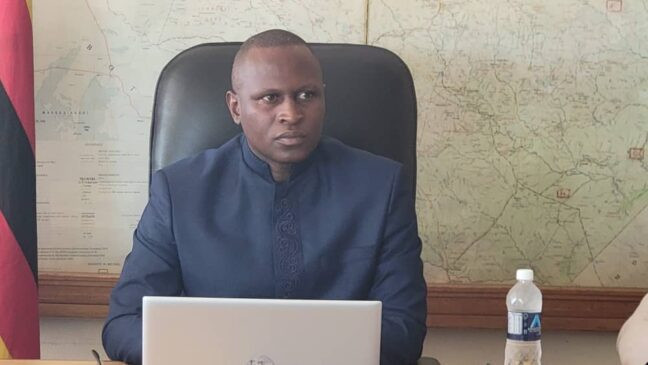
Recent remarks by Health and Child Care deputy minister Sleiman Timios Kwidini in Parliament last week have sparked national debate about the state of the country’s public health sector.
Responding to concerns raised by fellow parliamentarians, Kwidini asserted that “our citizens are very happy with the service delivery we are giving,” further suggesting that complaints about the health sector are largely confined to social media and not reflective of the real situation on the ground.
This statement, coming from a senior official and a former registered nurse for that matter, has been met with disbelief and concern from both the public and health professionals.
Kwidini’s comments stand in stark contrast to well-documented challenges in Zimbabwe’s healthcare system.
Reports from frontline workers and patients consistently highlight shortages of basic medical supplies, inadequate infrastructure, and a critical lack of resources in public hospitals.
The deputy minister’s dismissal of these concerns as “decay...only in the heads of social media participants” therefore raises questions about the government’s willingness to acknowledge and address persistent problems.
This disconnect is particularly troubling given Kwidini’s professional background.
As a nurse by training, he is acutely aware of the day-to-day hardships faced by patients and healthcare workers, including shortages of bandages, gloves, analgesics, water, linen, and even hospital beds.
- Cars up for grabs in batteries competition
- Africa should be better prepared for Europe’s security funding shift
- Sadc PF wants right to health enforceable
- AG’s report shows growing impunity at the heart of govt operation
Keep Reading
The absence of essential equipment and consumables is not a social media fabrication, but a reality that has been exacerbated by years of economic challenges and underinvestment in the sector.
The role of a deputy minister, especially one with clinical experience, should be to advocate for patients and champion reforms based on frontline realities.
Instead, Kwidini’s remarks have been perceived as an attempt to deflect criticism rather than confront the sector’s chronic deficiencies.
This approach undermines public trust and risks further alienating healthcare professionals who are already demoralized by difficult working conditions.
The expectation is that leaders in the health sector will prioritise transparency, evidence-based policy, and robust advocacy for increased funding-such as meeting the Abuja Declaration’s target of allocating 15% of the national budget to health. Political grandstanding and denial do little to advance these goals or to reassure citizens that their concerns are being taken seriously.
It is important to acknowledge efforts made by the government and partners to improve the health sector, including the procurement of equipment following high-profile interventions and the organization of international forums to foster knowledge exchange.
The first lady Auxillia Mnangagwa, has played a visible role in promoting health initiatives and facilitating partnerships, most recently with Belarusian medical experts. These initiatives are commendable and necessary steps toward modernizing the sector.
However, such efforts do not erase the longstanding structural and resource deficits that continue to impede the delivery of quality healthcare.
The health sector’s problems are deeply rooted and require sustained, systemic reforms rather than episodic interventions or rhetorical assurances.
Healthcare is inherently apolitical; illness does not discriminate, and the need for effective health services transcends political divides.
The current situation calls for sober, inclusive dialogue and a unified commitment to reform.
Leaders must listen to the voices of patients, frontline workers, and civil society-whether those voices are raised in Parliament, on social media, or in hospital corridors.
The deputy minister’s recent statements should serve as a catalyst for renewed scrutiny of health sector governance and a recommitment to the principles of accountability, transparency, and patient advocacy.
Only by confronting uncomfortable truths can Zimbabwe hope to build a resilient, equitable healthcare system that meets the needs of all its citizens.
*Forward Nyanyiwa is a Zimbabwe-trained and state-registered nurse, who is now working at a hospital in Carlow, Ireland. He is also an award-winning journalist.











